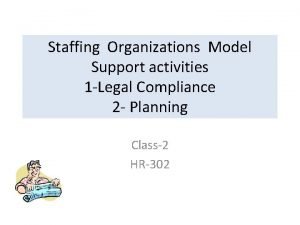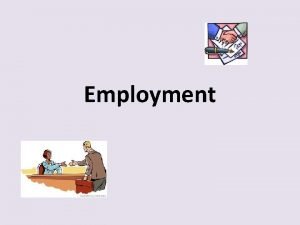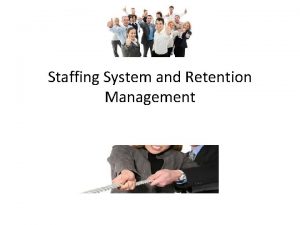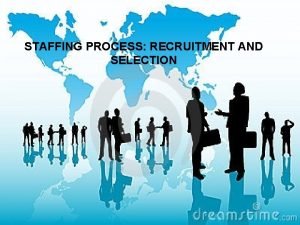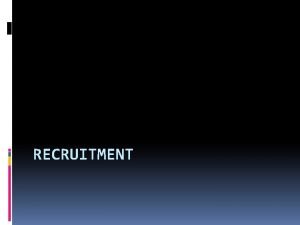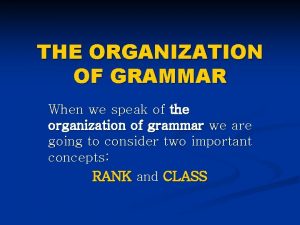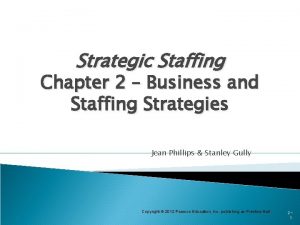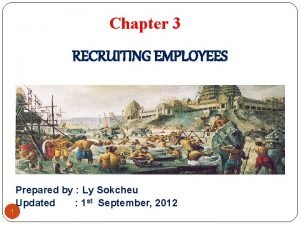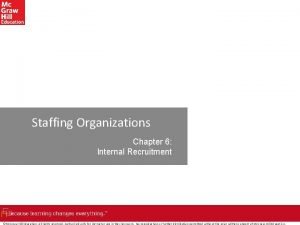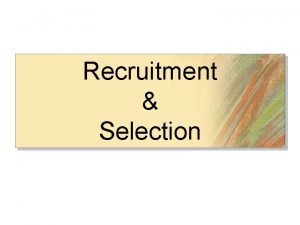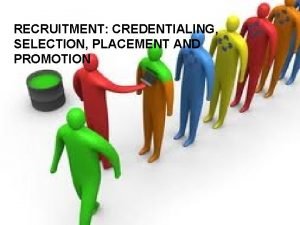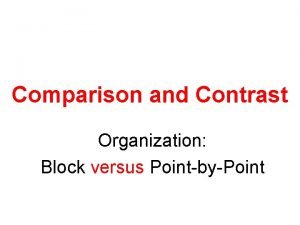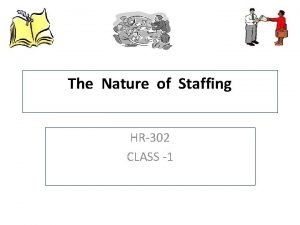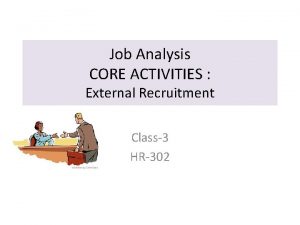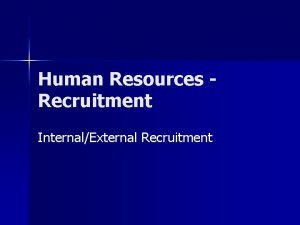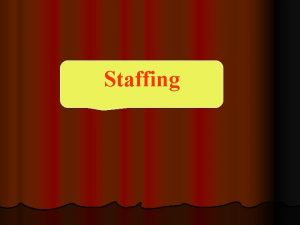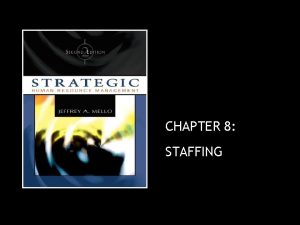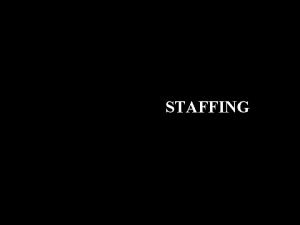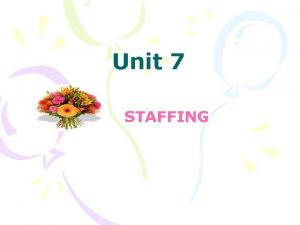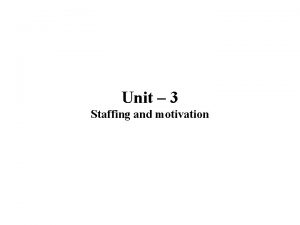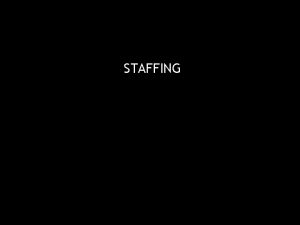Internal recruitment HR302 Class5 Staffing Organizations Model Organization













- Slides: 13

Internal recruitment HR-302 Class-5

Staffing Organizations Model Organization Mission Goals and Objectives Organization Strategy HR and Staffing Strategy Staffing Policies and Programs Support Activities Core Staffing Activities Legal compliance Planning Recruitment: Selection: Job analysis Employment: External, internal Measurement, external, internal Decision making, final match Staffing System and Retention Management 4 -2

Internal recruitment • Internal recruitment is the process of identifying and attracting current employees for open jobs. • Internal recruitment advantages : 1 - the employees already know the organization’s culture. 2 - they need less training. 3 - they have relationship with coworkers.

Internal recruitment • Recruitment planning. • Strategy development.

Recruitment planning Before identifying and attracting internal applicants to vacant jobs some attention must be directed to some issues. • 1 - Organization Issues: organization must create a structured set of jobs for their employees and paths of mobility for them to follow as they advance in their career. To do this organization create internal labor market. • Internal labor market have two components: 1 -Mobility path 2 - Mobility policies

Recruitment planning 1 -Mobility path: depict the path of mobility between jobs. ü Hierarchical mobility paths ü Alternative mobility paths Upward mobility in the organization. Up, down, and side to side. 2 - Mobility policies: cover the operational requirements needed to move between jobs. ü Development: Development employees are likely to see a well- articulated and wellexecuted mobility path policy as fair. A poorly developed policy is likely to lead to employees claims of favoritism and discrimination. ü Eligibility criteria: criteria listing of the criteria by which the organization will decide who is eligible to be considered for a vacancy in a mobility path.

Recruitment planning • 2 -Administrative issues: ü A requisition is a formal document that authorizes the filling of a job opening indicated by signatures of top managements. Documenting that consistent business related policies are followed for internal mobility also helps ensure that the system is legally defensible. ü Coordination: internal and external professionals must work together with the line manager to coordinate efforts before the search for candidates begins.

Recruitment planning ü Budget: Budget the cost per hire in internal recruitment is not necessarily less than the cost per hire for external recruitment. ü Recruitment guide: A formal document that details the process to be followed to attract applicants to a vacant job. ü Timing: • Lead time concerns: the major difference between internal and external recruitment is that internal recruitment not only fills vacancies but also create them. • Time sequence concerns: Many organizations start with internal recruitment followed by external recruitment to fill a vacancy.

Strategy Development 1 - Closed Recruitment • Definition : Employees are not informed of job vacancies. • The only people made aware of promotion or transfer opportunities are: ü Who oversee placement in the HR department. ü line managers with vacancies. ü Contacted employees. • Advantages: efficient, few steps to follow, less cost &time. • Disadvantages: It depends on the information that are in the employees’ files, if the files are inaccurate qualified employees may be overlooked. So, employees’ talents are covered.

Strategy Development

Strategy Development 2 - Open Recruitment • Definition: Employees are made aware of job vacancies. • Advantages: ü Gives employees chance to measure their qualification. ü Helps minimize the possibility that supervisors will select favorite employee. ü Hidden talent is uncovered. • Disadvantages: ü Create unwanted competition among employees for limited opportunities. ü Time consuming.

Strategy Development

Strategy Development 3 - Hybrid system • Definition – Jobs are posted, and the HR department conducts a search , both systems are used to cast as wide a net as possible • Advantages – Thorough search is conducted. – People have equal opportunity to apply for postings. – Hidden talent is uncovered. • Disadvantages – Very time-consuming and costly process.
 Staffing activities
Staffing activities Staffing organization model
Staffing organization model Staffing organization model
Staffing organization model Staffing process
Staffing process Meaning of recruitments
Meaning of recruitments Organizations or organization's grammar
Organizations or organization's grammar Strategic staffing process
Strategic staffing process Internal recruitment sources
Internal recruitment sources Differences between recruitment and selection
Differences between recruitment and selection Chartwell staffing jobs
Chartwell staffing jobs Advantages of external sources of recruitment
Advantages of external sources of recruitment Internal sources of recruitment
Internal sources of recruitment Process organization in computer organization
Process organization in computer organization Block essay
Block essay
